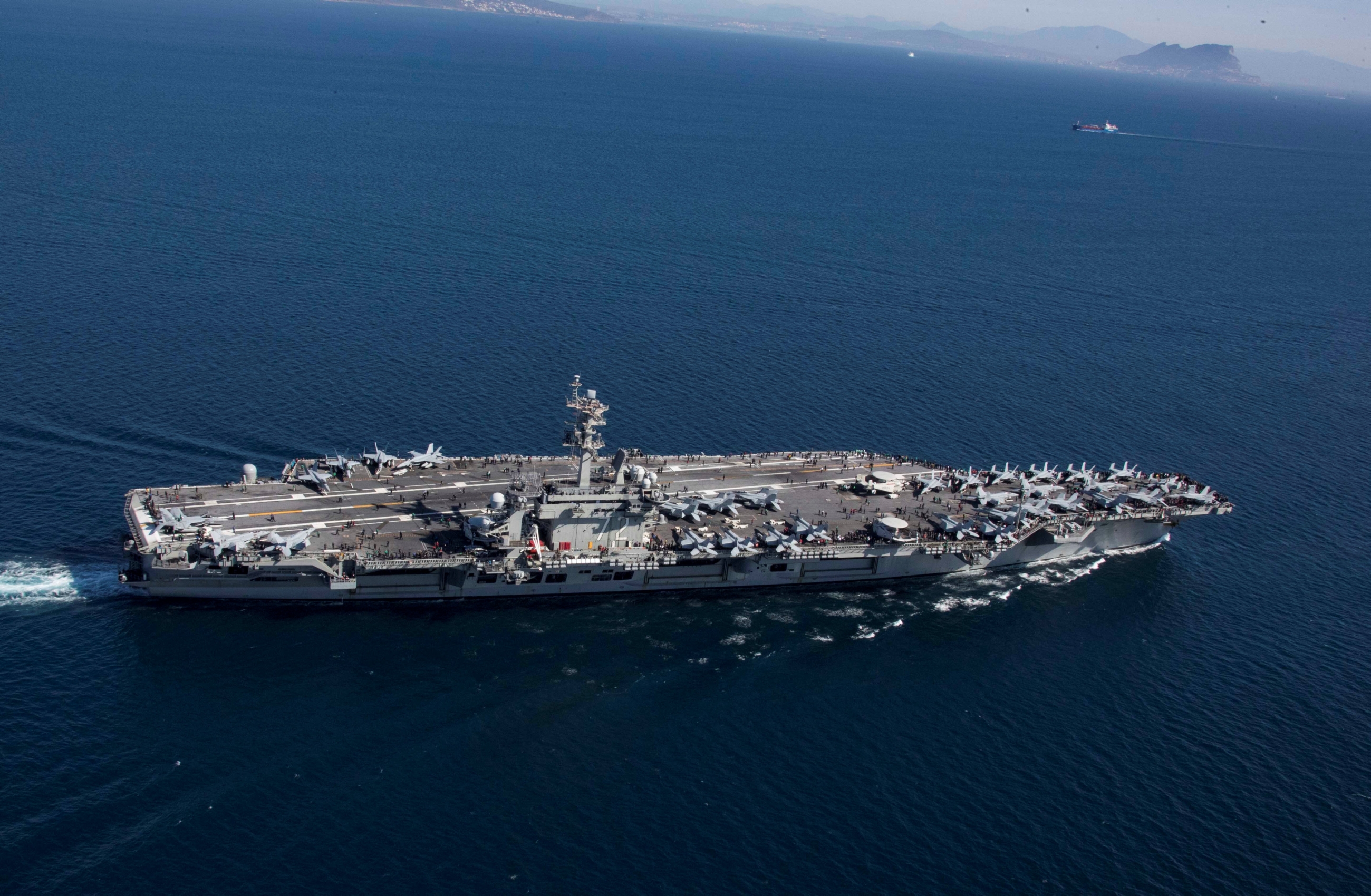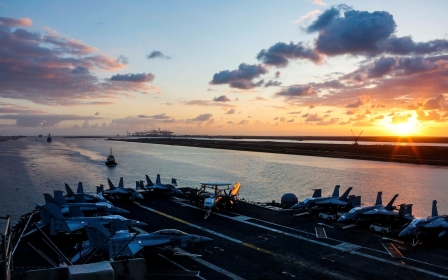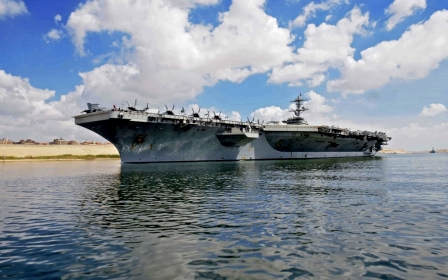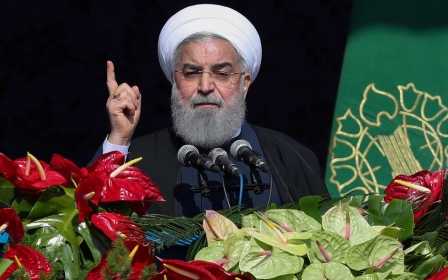US to further deploy Patriot missiles, warship to Middle East as Iran tensions flare

The US has approved a new deployment of Patriot missiles and a warship to the Middle East, further bolstering its presence in the region amid escalating tensions with Iran.
The USS Arlington, which transports marines, amphibious vehicles, aircraft, as well as Patriot missiles, will join the USS Abraham Lincoln Carrier Strike Group whose deployment was announced last week.
In a statement, the Pentagon said the deployments were “in response to indications of heightened Iranian readiness to conduct offensive operations against US forces and our interests.”
“The United States does not seek conflict with Iran but we are postured and ready to defend US forces and interests in the region,” the statement said.
“The Department of Defence continues to closely monitor the activities of the Iranian regime, their military and proxies.”
New MEE newsletter: Jerusalem Dispatch
Sign up to get the latest insights and analysis on Israel-Palestine, alongside Turkey Unpacked and other MEE newsletters
Earlier in the week, a US air force bomber task force, including B-52 bombers, also arrived at the US airbase al-Udeid in Qatar, US Central Command said.
The decision to send Patriot missiles would mark a reversal of sorts, coming just months after the Pentagon removed several Patriot batteries from the Middle East. The Patriot missile system is a defence mechanism against aircraft, drones and other missiles.
Tensions between Iran and the United States have escalated sharply in recent weeks.
The United States, which backed out of the 2015 nuclear deal under President Donald Trump, has effectively ordered countries worldwide to stop buying Iranian oil or face US sanctions, which Washington says are aimed at completely choking off Iranian crude exports.
Washington last month blacklisted Iran’s Revolutionary Guard as a terrorist group.
US officials say they have detected troubling indications that Iran could be preparing a military response.
US officials, speaking on condition of anonymity, say one of the pieces of intelligence indicated Iran had moved missiles on boats. One of the officials said the particular missile observed was perhaps capable of launching from a small ship.
The officials also noted growing concerns about the threat from Iran-backed militias in Iraq, which have long avoided any confrontation with US troops under the shared goal of defeating the Islamic State.
The commander overseeing US naval forces in the Middle East told Reuters on Thursday that American intelligence showing a threat from Iran would not prevent him from sending an aircraft carrier through the vital Strait of Hormuz, if needed.
US Vice Admiral James Malloy, commander of the US Navy's Bahrain-based Fifth Fleet, said that the US was prepared to send a US aircraft carrier through the strait, through which passes a fifth of oil consumed globally.
Iran has dismissed the American troop build-up as "psychological warfare" designed to intimidate it.
Iranian news agency ISNA quoted Ayatollah Tabatabai-Nejad in the city of Isfahan as saying: "Their billion dollar fleet can be destroyed with one missile.
"If they attempt any move, they will ... (face) dozens of missiles because at that time (government) officials won't be in charge to act cautiously, but instead things will be in the hands of our beloved leader (Ayatollah Ali Khamenei)," he said on Friday.
Thousands of Iranians took part in marches on Friday to support the government's decision to reduce limits on its nuclear programme. Iran has threatened to go further if other parties to the 2015 deal - Britain, China, France, Germany and Russia - fail to shield it from US sanctions.
Middle East Eye delivers independent and unrivalled coverage and analysis of the Middle East, North Africa and beyond. To learn more about republishing this content and the associated fees, please fill out this form. More about MEE can be found here.




